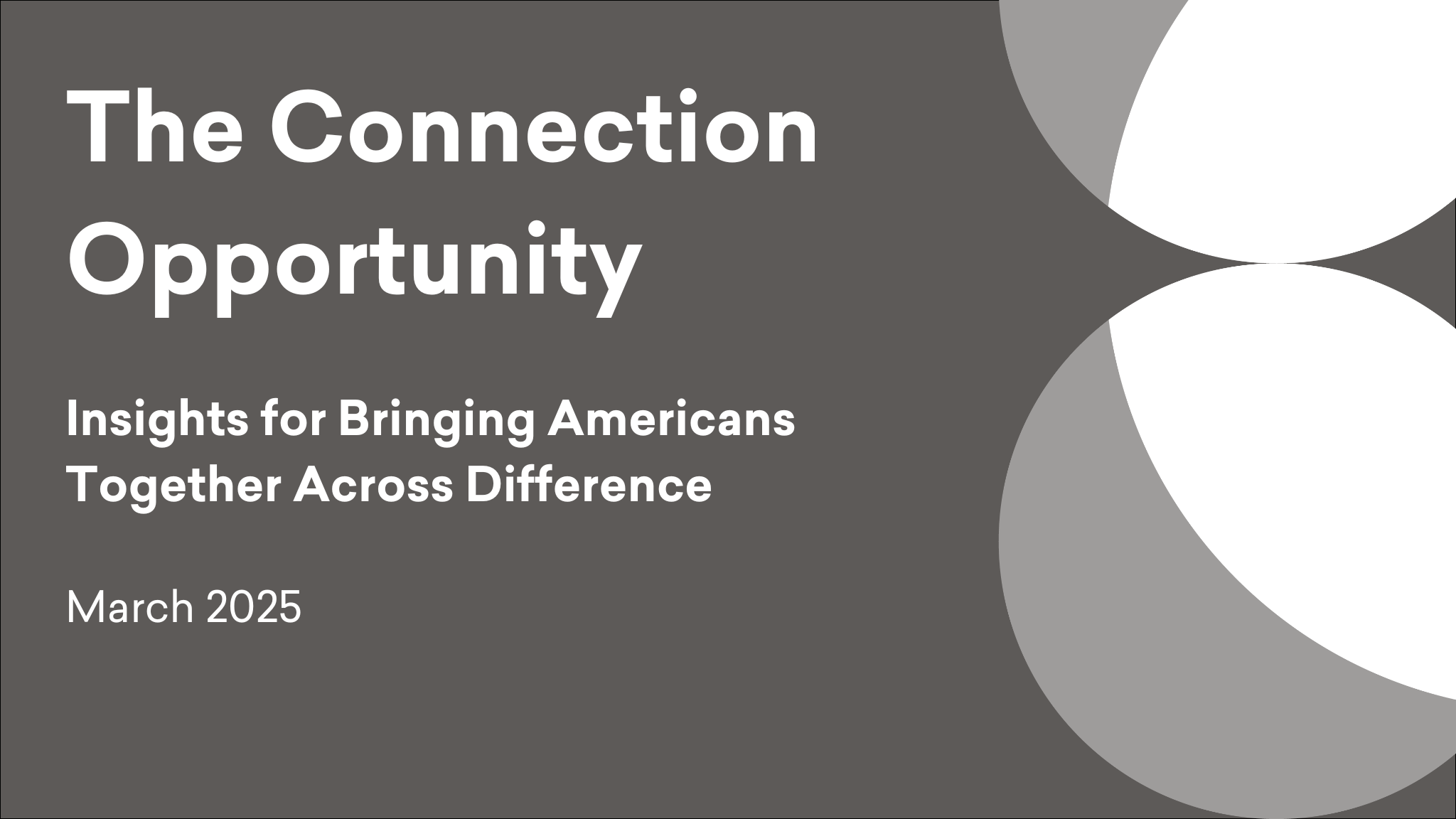
18 March 2025
Why Democracy Needs Sports Fans
August 27, 2025
Pluralism
Social Connection
Sports fandom is a powerful source of meaning and identity for millions of Americans. Fans are more trusting and more confident in America’s core institutions than non-fans. Fandom benefits the individual fan as well: fans are less lonely, more active, and more connected to their families than non-fans.
More in Common conducted a study to better understand how these benefits may extend into the democratic sphere. Being embedded in one’s community is foundational to civic participation, social trust, and, ultimately, democratic health. This kind of connection is especially critical today, as political polarization continues to fracture society, loneliness remains on the rise, and emerging technologies like AI threaten to further isolate us. Stated more simply: in a country as big and diverse as ours, doing stuff together is really important, and it’s more difficult than ever to do.
But entry points to civic participation matter. Through its research over the last seven years, More in Common has consistently found that Americans’ whose most important identity is a political one, and who are in turn most politically active, tend to feel the most hostility towards their opposing political party members.
Sports fandom may offer a uniquely durable and scalable entry point to civic participation. Like many important parts of our community life, fandom is often passed down by families through generations; and, perhaps unlike other avenues to connection, rooting for a team is easy and fun. Sports is a space where people from all walks of life can and do participate, transcending backgrounds and identity.
By studying sports fandom, our aim was to shed light on a promising but underexplored source of social cohesion in American life.
This study relies on a framework for classifying fandom developed by Ben Valenta and David Sijorak in their 2022 book Fans Have More Friends, which distinguishes respondents as Non Fans (those who don’t follow sports at all), Low Value, Mid Value or High Value Fans (those who follow sports most closely and most passionately).
Polling Firm: More in Common
Sample Size (US): N = 5,205 US adults
Fieldwork Dates: June 23-27, 2025
Margin of Error: +/- 1.36 % for the US average and higher for subgroups.
The data were weighted to be representative according to gender/age interlocked, race, education level, region, and 2020 Presidential vote choice.
More in Common polled 206 participants from May 6 – 14, 2025 on its “Americans in Conversation” online qualitative research panel, which is broadly representative of the American population.
of High Value sports fans are registered to vote, compared with 75% of non-fans.
of High Value sports fans say sports provide a healthy avenue for men to express themselves, compared to just 48% of non-fans.
of High Value sports fans are interested in working a mutual goal in their community with those who hold different political views, compared to 65% of non-fans.
Explore the depth of our research at your fingertips. Get the complete insights by downloading the full report today.
What unites and divides Americans today? This newsletter takes a closer look at issues pressing on America’s social and political fabric and provides recommendations for how to strengthen ties to keep us bound together.